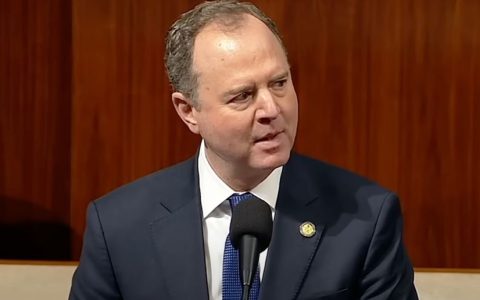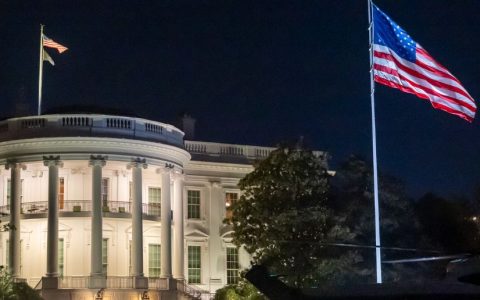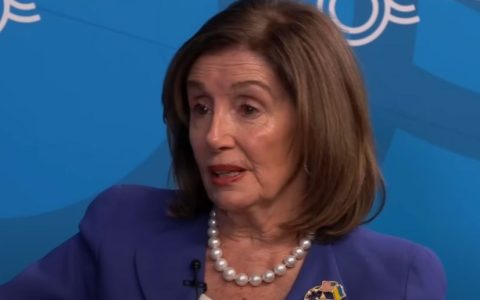
Congress is in the middle of a giant battle. Donald Trump wants it to end as soon as possible.
That’s why this U.S. Senator making this confession on NBC has changed everything for Trump.
Rand Paul’s Dance with Trump’s Bill Changes As A Path to Persuasion Opens
Kentucky’s Republican Senator Rand Paul has long been a thorn in the side of big-spending legislation, but his recent comments suggest President Donald Trump’s administration may have found a chink in his armor. On NBC’s Meet the Press Sunday, Paul revealed a willingness to negotiate on Trump’s ambitious “big, beautiful bill,” hinting that the president could sway him with the right concessions. For an administration eager to cement its agenda, Paul’s openness presents a golden opportunity to flip a key Senate holdout and secure a legislative victory.
The bill, a reconciliation package central to Trump’s economic vision, narrowly squeaked through the House on May 22 by a single vote, with GOP rebels like Kentucky’s Thomas Massie and Ohio’s Warren Davidson siding with Democrats in opposition. Now in the Senate, the package faces scrutiny from fiscal hawks like Paul, who have raised alarms over provisions hiking the debt ceiling, tweaking Medicaid, and preserving Biden-era green energy subsidies. With a July 4 deadline looming, the Trump administration is under pressure to unify its party and deliver.
Paul’s Sunday appearance on Meet the Press offered a glimpse into his thinking. Host Kristen Welker pressed him on his stance, prompting Paul to share details of a recent conversation with Trump. “I talked to the president last evening after the parade, and we’re trying to get to a better place in our conversations. I’ve let him know that I’m not an absolute no. I can be a yes,” Paul said. This admission is a game-changer, showing that Paul is not digging in his heels but instead leaving the door ajar for Trump to make a deal.
The senator’s primary sticking point is the debt ceiling increase, which he argues balloons the deficit by an unacceptable $5 trillion. “Congress is awful with money, and so you should give them a more restricted credit line, not an expansive one,” Paul declared. Yet, he expressed enthusiasm for the bill’s tax cuts, aligning himself with supply-side economists like Art Laffer. “I like the tax cuts. I actually agree with Art Laffer and the supply siders that a lot of times we cut rates,” he noted, suggesting that the tax provisions could be a sweetener to win him over.
Paul’s critique of the debt ceiling provision is unwavering, but his proposed solution is clear. “Yes, the debt ceiling has to go up, but what I’ve said is it ought to go up three months at a time, and then we should have a renewed debate about the debt,” he explained. By advocating for incremental increases rather than a massive, long-term hike, Paul positions himself as a principled conservative while offering Trump a practical compromise. The administration could seize this as a way to keep Paul in the fold without gutting the bill.
The senator’s comments also reveal a strategic calculus. “Separate out the debt ceiling and have a separate vote on it, and I won’t be deciding vote on this. Is this what I tell my supporters? I will be. If I am the deciding vote, they’ll negotiate. If I’m not, they won’t,” Paul said. This statement is a direct message to Trump: Paul knows his vote could make or break the bill, and he’s ready to leverage that power. The Trump team now has a roadmap to engage him, but they’ll need to tread carefully.
Paul didn’t mince words about the GOP’s initial approach, criticizing their heavy-handed tactics. “So far, they’ve been sending their attack dogs after me, and that’s not a great persuasion technique,” he quipped. This jab suggests that the administration’s early efforts to strong-arm him backfired, but Paul’s willingness to negotiate indicates he’s not burning bridges. “I will negotiate if they come to me, but they have to be willing to negotiate on the debt ceiling because I’m conservative,” he added, reaffirming his ideological stance while inviting dialogue.
The senator’s public airing of his grievances isn’t new. In a May 25 Fox News interview with Shannon Bream, Paul slammed the GOP for mimicking Democratic tactics by refusing to jettison the debt ceiling provision. House Speaker Mike Johnson countered on the same network, insisting the debt ceiling is essential to pass the Senate package. This back-and-forth exemplifies the tightrope Trump’s team must walk to align their Senate critics, but Paul’s latest remarks suggest he’s more malleable than his rhetoric might imply.
Senate Majority Leader John Thune remains optimistic, stating on May 22 that a “workable path” exists to secure the necessary votes. With only three GOP defections tolerable to pass the bill, Paul’s vote is critical. His insistence on separating the debt ceiling vote could be the linchpin to bring him onboard, especially since he’s signaled he’s not opposed to the bill’s core components like tax cuts. The administration could offer a standalone debt ceiling vote to appease him, a move that would keep the reconciliation package intact.
Paul’s history as a fiscal watchdog makes his openness to Trump’s bill all the more significant. His earlier vow to reporters that he wouldn’t support the package without removing the debt ceiling provision showed his resolve, but his recent comments indicate a shift.
By publicly outlining his conditions, Paul has given Trump a clear playbook to win him over. The administration could capitalize on this by engaging him directly, offering concessions on the debt ceiling while emphasizing the bill’s economic benefits. The stakes are high as the July 4 deadline approaches.
Paul’s revelation that he’s not an “absolute no” gives Trump’s team a fighting chance to flip him, potentially turning a Senate roadblock into a triumph. By focusing on Paul’s desire for spending cuts and a restrained debt ceiling increase, the administration could craft a deal that aligns with his conservative principles while advancing Trump’s agenda. The ball is now in Trump’s court to make the pitch.
For now, Paul’s dance with the administration continues, with each side probing for common ground. His candid remarks on Meet the Press have laid bare his priorities, offering Trump a window to secure his vote. Whether through a separate debt ceiling vote or deeper spending cuts, the path to persuasion is clearer than ever, and the Trump team would be wise to take it.
🚨Here’s what the fake news media won’t tell you about President Trump’s One Big Beautiful Bill. pic.twitter.com/xIzggdzJMd
— Peter Navarro (@RealPNavarro) June 13, 2025
Stay tuned to the DC Daily Journal.





